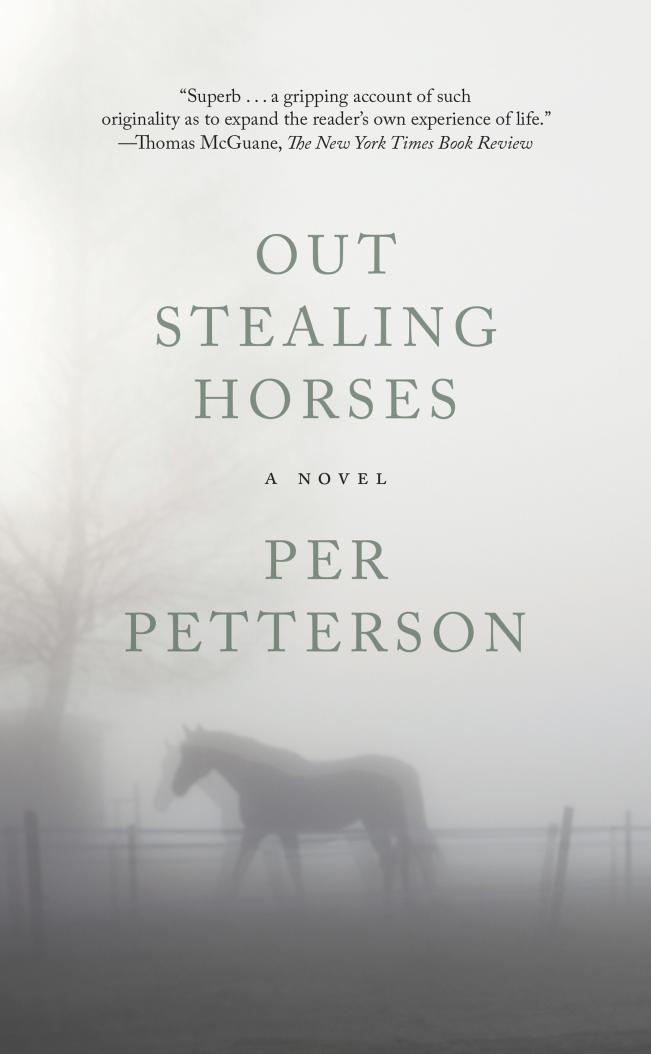In the realm of modern literature, few works manage to captivate a reader’s curiosity while simultaneously offering profound insights into the human condition. “Out Stealing Horses,” a remarkable novel penned by Per Petterson, is one such gem. Set against the backdrop of the sprawling Norwegian countryside, this narrative unfurls layers of memory, loss, and the intricate tapestry of familial relationships. It promises not just a story, but a compelling shift in perspective that enraptures and enchants.
The narrative unfolds through the eyes of Trond, an introspective man who recounts his life as he retreats to a secluded cabin in the woods. This act of isolation serves as a catalyst for revisiting poignant memories from his youth, craving the solace of nature to find clarity in his tumultuous past. The dual narrative — one of the present and one of memories — offers a rich canvas upon which Petterson deftly paints the complexities of life, weaving together themes of regret, reconciliation, and the bittersweet nature of nostalgia.
At its heart, “Out Stealing Horses” invites readers to ponder the essence of identity and the influence of memory on our current selves. Trond’s introspections challenge us to examine the fractures within our own familial bonds, while asserting that even in the shadows of pain, there exists an inkling of hope and redemption. Petterson’s ability to juxtapose the simplicity of rural life with the profound struggles of the human psyche creates an intriguing tension that keeps readers engrossed.
The prose is minimalist yet evocative, with Petterson’s linguistic prowess drawing intricate images of the Norwegian landscape that mirror Trond’s internal world. The quietude of the forests and the passing flow of the river serve as a backdrop, accentuating the weight of Trond’s contemplations. Through his lens, the wild and untamed nature becomes a living entity, reflecting the protagonist’s quest for understanding amidst turmoil. This natural imagery harmonizes splendidly with the profound emotional undercurrents — an embodiment of how memories can haunt or liberate us, depending on perspective.
As Trond delves deeper into his recollections, we are introduced to his father, an enigmatic figure whose impact reverberates throughout Trond’s life. The complexities of their relationship, articulated through shared experiences and unspoken words, illuminate the essence of paternal bonds. Here, Petterson brilliantly encapsulates the dual nature of love and disappointment that defines many familial structures. Readers are compelled to reflect on their own relationships as they witness the unvarnished truth of Trond’s reliance on his father’s approval and the inevitable disappointments that ensue.
Moreover, “Out Stealing Horses” proffers a nuanced exploration of masculinity through the lens of Trond’s interactions with other male figures. The themes of stoicism, vulnerability, and the often-ambiguous definitions of strength unfurl organically within the narrative. This renders the book an insightful commentary on how societal expectations shape personal identities, particularly within the context of rural settings. Trond’s reflections on his friends and neighbors reveal a microcosm of masculine behavior layered with insecurity and tenderness. Each encounter unveils differing shades of strength, inviting readers to reconsider their preconceived notions about masculinity.
The seamless transition from past to present in Petterson’s writing exemplifies a masterful handling of narrative structure. Each memory unfolds like a delicate origami flower, layered and intricate, inviting readers to peel back the petals to discover hidden complexities. This narrative technique not only piques curiosity about Trond’s past but also enhances the emotional resonance of his current solitude. The interplay between memory and reality evokes an almost tactile experience, fostering a connection that reverberates long after the last page is turned.
Petterson employs a deliberate pace, allowing moments to breathe and linger. This contemplative rhythm mirrors Trond’s own introspection, drawing readers into a reflective state. The novel is not merely a series of events; it is a profound meditation on the passage of time and the inevitable changes it brings. In an era where readers often seek fast-paced narratives, Petterson’s approach challenges us to slow down and absorb the emotional weight of life’s quiet moments.
In conclusion, “Out Stealing Horses” is much more than a novel; it serves as a reflective mirror for those willing to engage with its depths. It compels us to reassess our relationships, examine the constructs of masculinity, and contemplate the fluidity of memory and identity. Petterson’s fusion of poignant storytelling with a rich exploration of emotional landscapes makes this book an essential read for anyone seeking a deeper understanding of the human experience. Prepare for a journey that invites reflection, evokes empathy, and leaves an indelible mark on the heart and mind.
Ultimately, “Out Stealing Horses” promises a shift in perspective that transcends the boundaries of its Norwegian setting. It piques the curiosity of readers yearning for stories rooted in authenticity and emotional truth, ensuring that Trond’s journey resonates universally, a reminder of the interconnectedness of our experiences. As the narrative unfolds, it inspires a sense of wonder about the untamed beauty of life, both within and beyond the confines of our memories.
